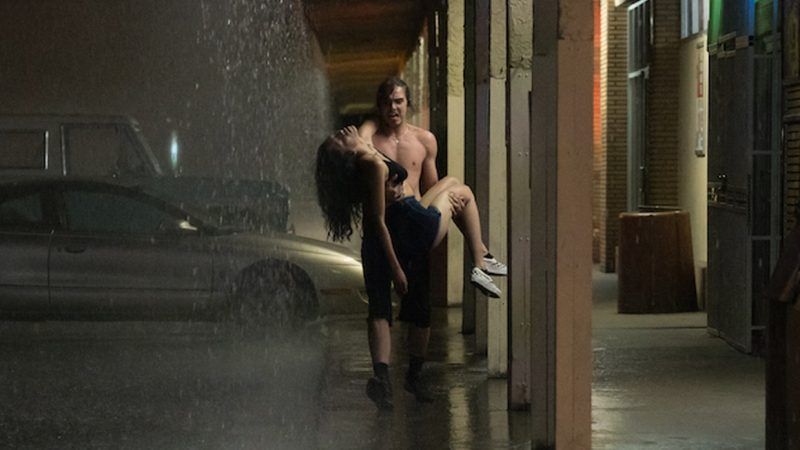Teen Heart Transplant Leads to Broody Chills in Chambers
Netflix show gives an old horror trope new life. Also, there’s Uma Thurman.

Chambers. Available now on Netflix.
Let's see if you can guess where this is headed: Two teenaged girls die at nearly the same moment: Sasha of a heart attack, Becky of an accidental electrocution. Doctors save Sasha with a transplant of Becky's heart.
Pretty soon, Sasha flashes a startling talent for fencing, a sport she's never tried before. (Coincidentally, Becky was on the school fencing team.) Even more surprising: Though Sasha is right-handed, she fences left-handed. (Coincidentally, Becky was left-handed.) And those dreams! Sasha starts Googling stuff like "strange visions after organ transplant."
So, okay, Netflix's new haunted-transplant series Chambers has probably been made, in one guise or another, about a zillion times in (literally) the last hundred years. It doesn't matter. This is a stylish, spooky piece of work, with some original twists that give it a little more punch than your average flick.
One is the sun-seared Arizona landscape in which it takes place, where truck-stop towns and precious New Age resorts cluster along the edge of the Navajo reservation. Sasha herself is at least partly Navajo, an orphan being raised by a loving but rough-hewn uncle. (The identity of her parents and the circumstances of their deaths, like much about Sasha's background, is withheld in Chambers' early episodes.)
Prior to her heart attack, Sasha (runway model Sivan Alyra Rose, doing a bravura job in her first major screen role) was a good but in no way remarkable kid in one of the forgotten desert backwaters. Ambition: to open a nail salon with her amusingly gabby high-school pal Yvonne (Kyanna Simone Simpson of The CW's Black Lightning) after graduation.
But following her transplant, Sasha is suddenly a budding academic as well as a fencing champion. And that's not the only challenge to her old identity. The parents of her heart donor Becky, who see Sasha as a surviving fragment of their daughter, begin pressing gifts on her: Becky's clothes. Becky's car. And a scholarship to Becky's fancy prep (and otherwise lily-white) school, the sort of place that has a "life coach" on staff as well as a safe-space nap room.
Soon, Sasha's uncle and then her friends sense character changes. But is she turning white? Or—more sinister—turning Becky? Because the Becky in Sasha's nightmarish dreams was both stalker and stalked, bullying schoolmates but also the target of a surveillance camera hidden in her bedroom. Wonders Sasha: "What if whoever was watching her is watching me?"
Series creator-writer Leah Rachel shows a far defter touch with her material than might be guessed from her relatively thin resume, which consists mostly of small internet projects. She resists the modern horror movie temptation of a quick body count and lets her story unfurl slowly and creepily, driven by characters who manage to be both sinister and sympathetic.
Uma Thurman, who's spent the past decade or so giving fine performances in little-watched productions, may right her career with the role of Becky's dippy mother Nancy Lefevre, laid low by a wound that cannot be cured by psychobabble paganism. Tony Goldwyn (Scandal) remains certain that sage bouquets and New Age breathing exercises will help, but there's also a disturbing streak of S&M in his Aquarian spiritual palette.
Even the craggy scenery seems like a brooding character, coiled to strike, which it eventually does, spawning one of Arizona's massive haboob duststorms, as palpable an example of elemental evil as you're ever likely to see—and a reminder that whatever lurks in Sasha's part of the desert is not likely to be quelled by aromatherapy or taoist meditation. Chambers may be an old story, but it's got a brutally modern punch.


Show Comments (11)